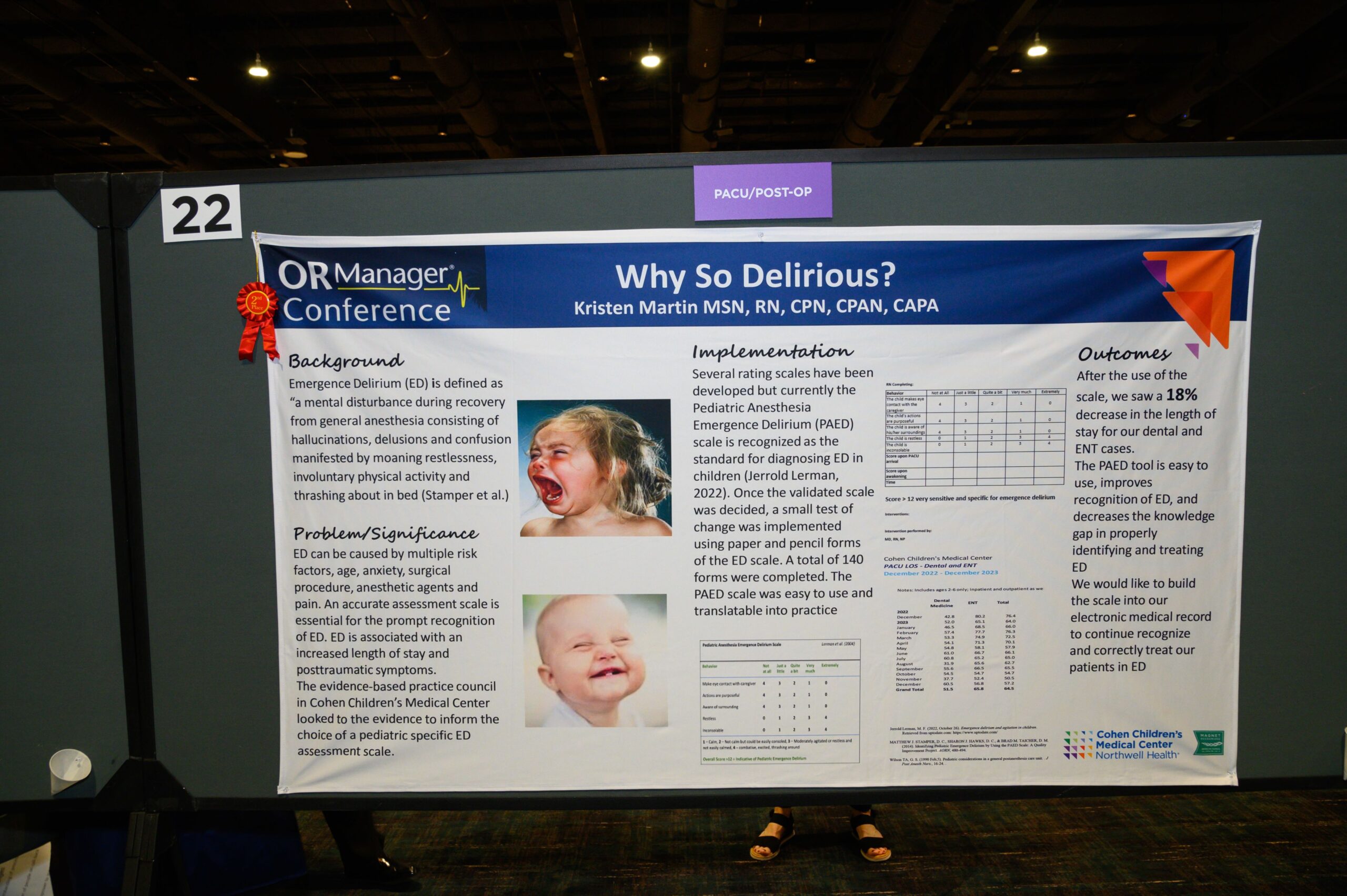If you’re looking for a model to handle the devastating but all-too-common complication of postoperative neurocognitive disorders (P-NCD, popularly known as delirium) experienced by your patients, some friends to our north have created a program that might be of interest. Toronto’s Sunnybrook Health Sciences Centre this month welcomed the first…

Editor's Note Older surgical patients with preoperative cognitive impairment face significantly higher odds of developing postoperative delirium (POD), and POD itself is tied to markedly worse surgical outcomes, according to two major studies published July 2025. Together, the findings point to delirium as both a high-impact and potentially modifiable target…
Editor's Note A recent article in AORN Journal underscores the need for vigilance and thorough documentation to manage postoperative mental status changes and prevent harm to both patients and staff. As detailed in the article, cognitive disturbances such as delirium and agitation can complicate recovery after surgery. Delirium is characterized…

Editor's Note Postoperative delirium significantly worsens outcomes for older adults undergoing major noncardiac surgery, according to research published July 8 in JAMA Network Open. Specifically, findings showed patients who developed postoperative delirium had 3.5 times the odds of death or major complications, 2.8 times the odds of 30-day mortality, and…

Editor's Note A machine learning (ML) model that integrates clinical data with natural language processing significantly improved detection and management of hospital delirium in older adults. Results were published May 7 in JAMA Network Open. Conducted at Mount Sinai Hospital, the quality improvement study evaluated the association of an ML-based…

The poster presentations at the 2024 OR Manager Conference showcased exceptional perioperative initiatives, highlighting advancements and innovative practices. From streamlining documentation and optimizing billing processes to ensuring patient and staff safety in postanesthesia settings, the posters selected last year showed the ingenuity and dedication of healthcare professionals committed to excellence…

Editor's Note Older cancer patients undergoing major abdominal procedures at Roger Williams Medical Center in Providence, Rhode Island, significantly benefitted from the American College of Surgeons (ACS) Geriatric Surgery Verification (GSV) program, Medical Xpress reported December 10. Citing a study published in the Journal of the American College of Surgeons,…

Editor's Note Efforts to reduce the risk of postoperative delirium in older patients should focus on preoperative evaluation, anesthesia choices, and medication management, according to the American Society of Anesthesiologists (ASA). Designed specifically for treating adults aged 65 and older undergoing inpatient surgery, these new, evidence-based recommendations are presented in…

Editor's Note Poor sleep quality in the month leading up to surgery could increase the risk of postoperative delirium, according to research presented at the Anesthesiology 2024 annual meeting, hosted by the American Society of Anesthesiologists (ASA). An October 15 report in NewsWise has the details. According to the article,…

Editor's Note A study presented at the 2024 American Society of Anesthesiologists annual meeting suggests that non-salicylate NSAIDs may significantly reduce the risk of postoperative delirium, a serious complication affecting up to 15% of surgical patients, Anesthesiology News reported October 20. Delirium is especially prevalent in older adults and those…